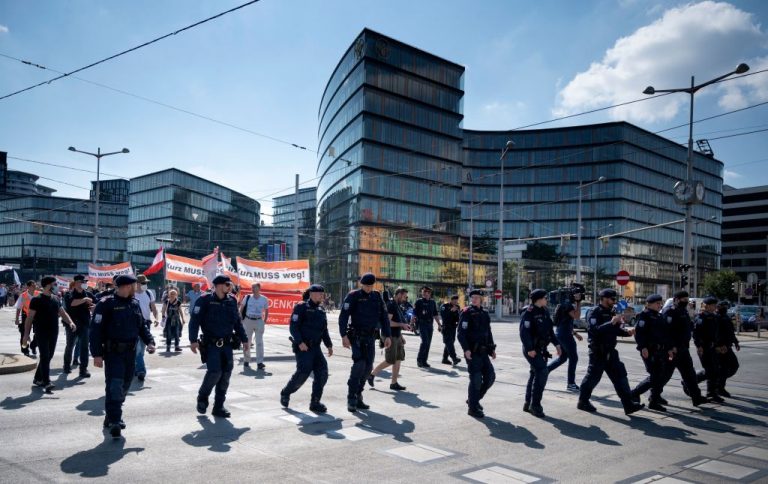In Austria, on Nov. 15, a lockdown targeting the unvaccinated came into effect. The lockdown reportedly would last for at least ten days. Under the new rules, Austrians age12 and up, and without vaccination, can only leave their homes for work, shopping, exercise, or study.
“We are not taking this step lightly, but it is necessary,” Austrian Chancellor Alexander Schallenberg said at a press conference on Nov. 14.
“In reality, we have told one-third of the population [they must lock down],” the chancellor said, alluding to the two to three million non-vaccinated citizens in the country, adding that, “You will not leave your apartment anymore apart for certain reasons. That is a massive reduction in contacts between the vaccinated and the unvaccinated,” Schallenberg said.
READ MORE: Austria Imposes COVID-19 Lockdown Targeting Unvaccinated Individuals
The apartheid measures will supplement the G-2 rule, which took effect on Nov. 8. The G-2 rule effectively bans the unvaccinated from public places like restaurants, hotels, theatres, and ski lifts.
Opposition
Success
You are now signed up for our newsletter
Success
Check your email to complete sign up
However, the Chancellor was met with quite a bit of opposition. “We have reached the limit. It has to be over,” Hermann Greylinger, the Social Democratic Trade Unionists’ frontman, said on Austrian television on Nov. 11, asserting that the enforcement of corona passes was not up to the police but health professionals.
On Monday, thousands of protesters took to Vienna’s city streets to protest the COVID-19 measures. The protest was co-sponsored by the Austrian Freedom Party (FPÖ) and the Austrian Armed Forces Union (FGÖ), an unofficial trade union for the military.
However, Upper-Austria and Salzburg decided not to wait for Vienna and implemented their own respective lockdowns for all tiers of society, which came into effect on Monday, Nov. 22.
Salzburg’s governor Wilfried Haslauer said at a press conference on Thursday afternoon, “We have considered a lockdown to be a significant infringement on the public, but now we are left with no other choice,” according to Zero Hedge.
He also urged the unvaccinated to get inoculated “so that we can get out of this lockdown as soon as possible, before Christmas if at all possible.”
“[A] lockdown is an effective short-term measure, but it is not a solution,” Haslauer said. “Vaccination is the only solution,” he added but failed to provide data to substantiate the claim.
“I would have preferred that we did not need this measure at all,” Haslauer added, after announcing the regulation would last for at least three weeks, more likely, four.
National Lockdown
Meanwhile, national Chancellor Schallenberg announced the country’s fourth nationwide lockdown to start next Monday, Nov. 29.
Authorities propped up their commitment to squash any form of civil disobedience as much as possible.
According to a statement by the Health Ministry on Friday, it said that unvaccinated people who violate the lockdown measures could be fined up to 500 euros (US$563) or be charged with fines up to 1,450 euros (US$1,633) in case of non-compliance with the carding protocols executed by police.
About two-thirds of the approximately 9 million Austrian citizens have been fully vaccinated against COVID-19, making Austria one of the lowest inoculated countries in Europe.
Vaccine Mandate
To motivate the remaining third of the population to get the vaccine, Schallenberg announced that the government would impose a vaccine mandate on everyone by February 1, 2022.
“Sustainably increasing vaccination coverage is the only way out of this vicious cycle,” Schallenberg said.
Proponents of the rule contend that imposing a vaccine mandate still doesn’t count as forcing people to take the vaccine, arguing that if you refuse to accept the vaccine, you may also “choose” to pay a 3,600 euro (US$4054) fine.
Citizens who don’t have enough money or are unwilling to pay the fine can also opt for a four-week incarceration program. With possibly millions of citizens refusing to be inoculated, quarantine facilities may see a surge in demand.
It’s not clear what will become of citizens, who after serving four weeks’ prison time still refuse to be inoculated. It may leave the state no other option than to keep citizens in the facility until the end of their life or when the pandemic is over — whichever comes first.

















